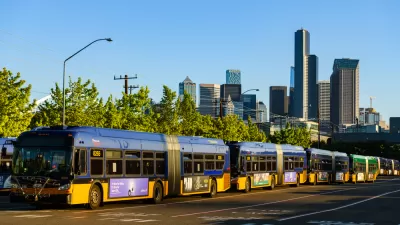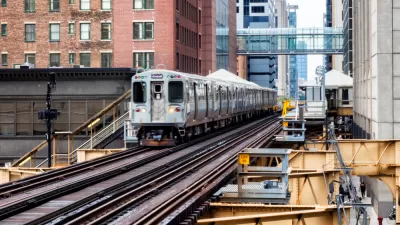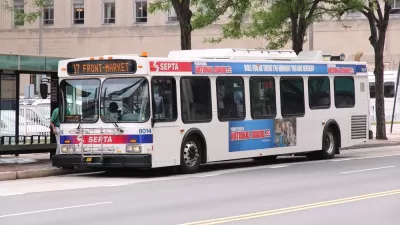As transit ridership remains tepid around the country, transit agencies are looking to diversify their funding sources and become less reliant on farebox revenue.

While transit agencies are bending over backwards to bring back passengers, they may have to accept that the post-pandemic future could mean fewer daily riders, writes Skylar Woodhouse in Bloomberg. Despite numerous efforts to reduce or eliminate fares, ridership continues to lag in most cities.
Jim Aloisi, a professor in transportation policy and planning at Massachusetts Institute of Technology, says “The problem is structural and it has to do with how agencies have relied too heavily on fare revenue.” According to Woodhouse, “Unless the government steps in or new sources of revenue are found, many agencies may be left with two choices. They can either cut service or raise fares, neither of which will help to bring riders back.” Bob Powers, head of Bay Area Rapid Transit, is calling for his agency to “to be funded more like an essential service, with less reliance on fare revenue.”
As Woodhouse notes, “The outlook appears grim but not all transit authorities are prepared to accept current ridership levels as permanent, especially with rising gas prices and increasing focus on sustainable transportation modes.”
“Nationwide, a key part in boosting ridership will be to increase service and eliminate delays,” but doing so will require new sources of funding and a model less heavily reliant on ridership revenue.
FULL STORY: Without Commuters, US Transit Agencies Are Running Out of Options

Planetizen Federal Action Tracker
A weekly monitor of how Trump’s orders and actions are impacting planners and planning in America.

Restaurant Patios Were a Pandemic Win — Why Were They so Hard to Keep?
Social distancing requirements and changes in travel patterns prompted cities to pilot new uses for street and sidewalk space. Then it got complicated.

Map: Where Senate Republicans Want to Sell Your Public Lands
For public land advocates, the Senate Republicans’ proposal to sell millions of acres of public land in the West is “the biggest fight of their careers.”

Maui's Vacation Rental Debate Turns Ugly
Verbal attacks, misinformation campaigns and fistfights plague a high-stakes debate to convert thousands of vacation rentals into long-term housing.

San Francisco Suspends Traffic Calming Amidst Record Deaths
Citing “a challenging fiscal landscape,” the city will cease the program on the heels of 42 traffic deaths, including 24 pedestrians.

California Homeless Arrests, Citations Spike After Ruling
An investigation reveals that anti-homeless actions increased up to 500% after Grants Pass v. Johnson — even in cities claiming no policy change.
Urban Design for Planners 1: Software Tools
This six-course series explores essential urban design concepts using open source software and equips planners with the tools they need to participate fully in the urban design process.
Planning for Universal Design
Learn the tools for implementing Universal Design in planning regulations.
Heyer Gruel & Associates PA
JM Goldson LLC
Custer County Colorado
City of Camden Redevelopment Agency
City of Astoria
Transportation Research & Education Center (TREC) at Portland State University
Camden Redevelopment Agency
City of Claremont
Municipality of Princeton (NJ)





























